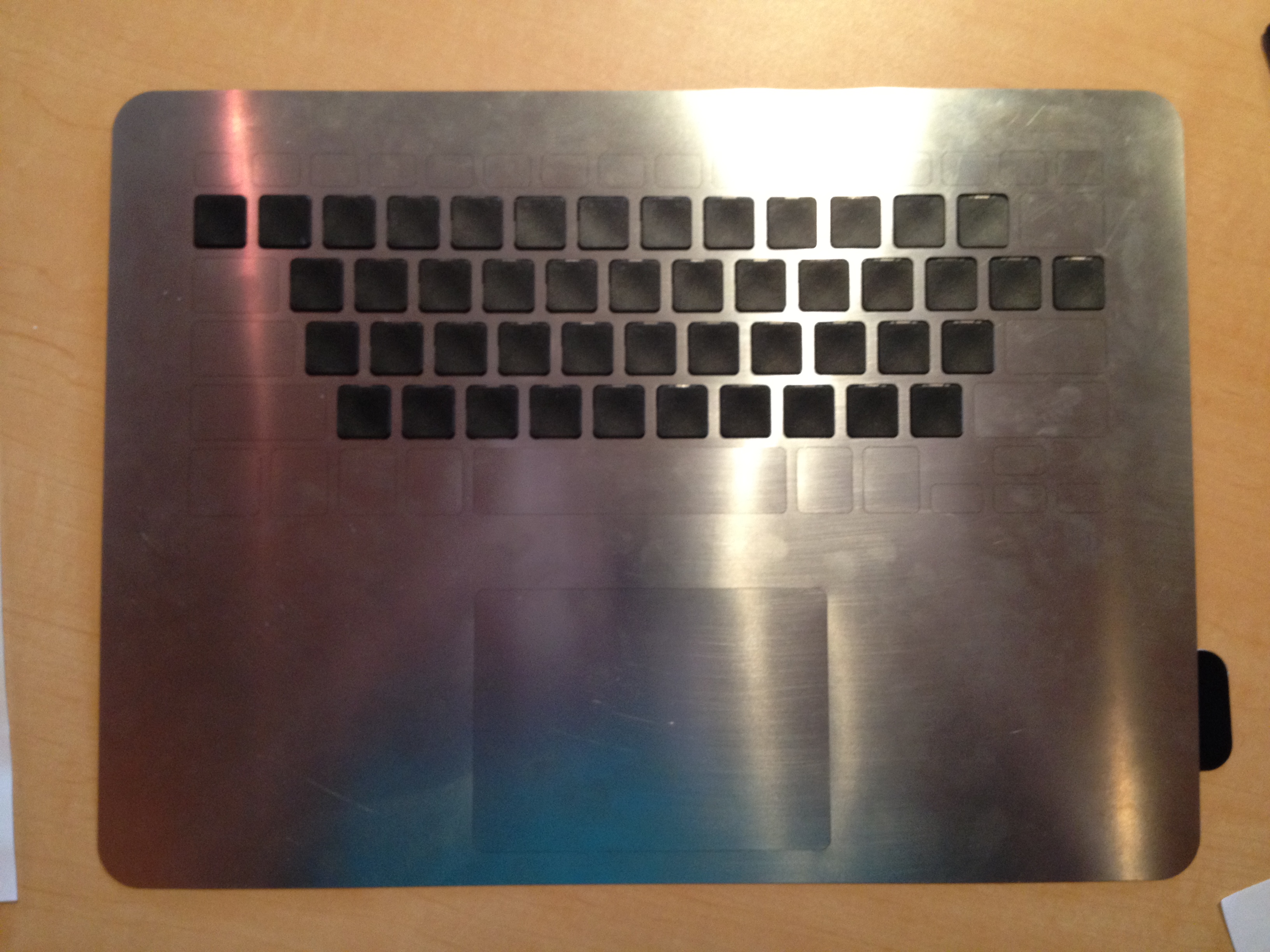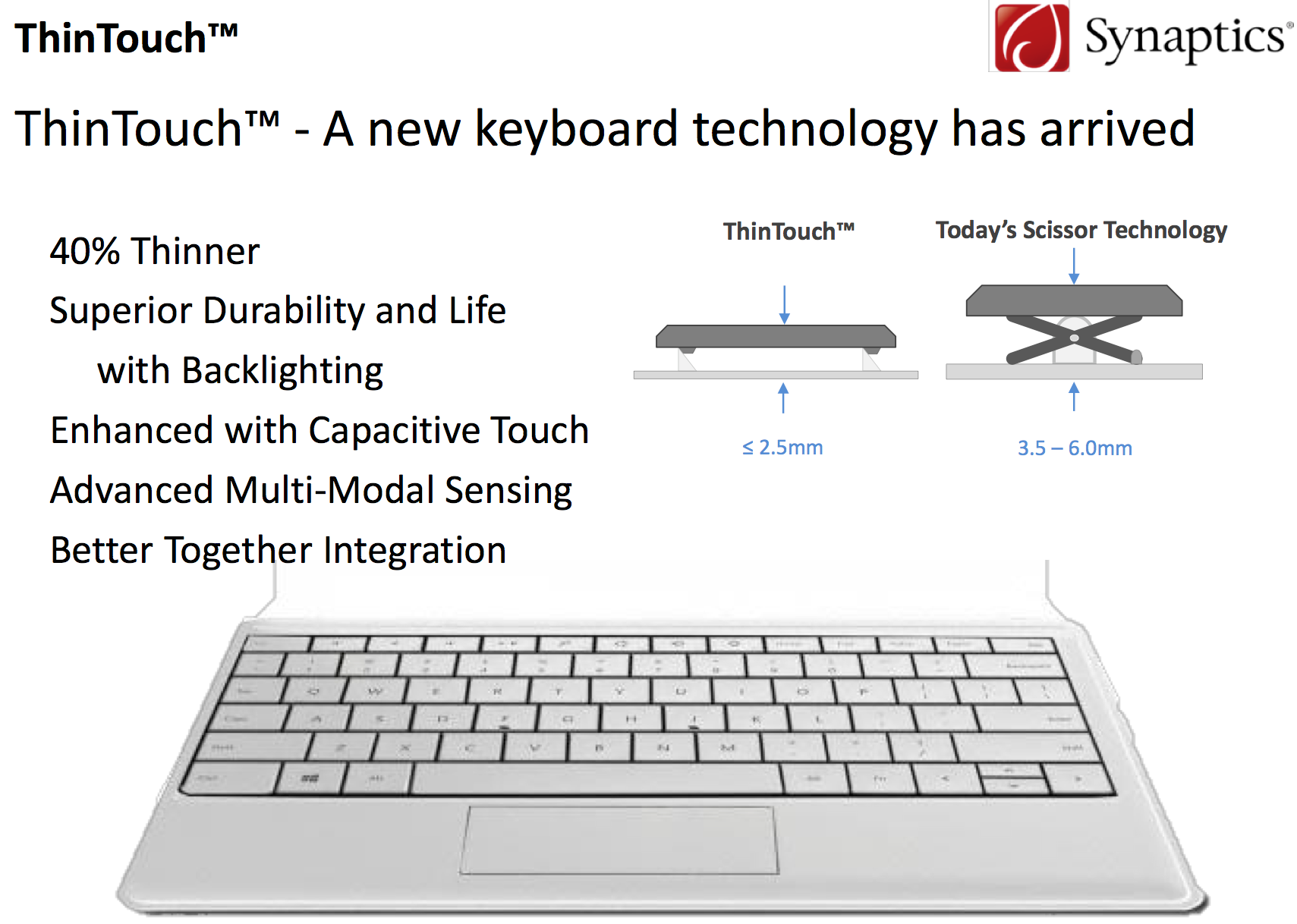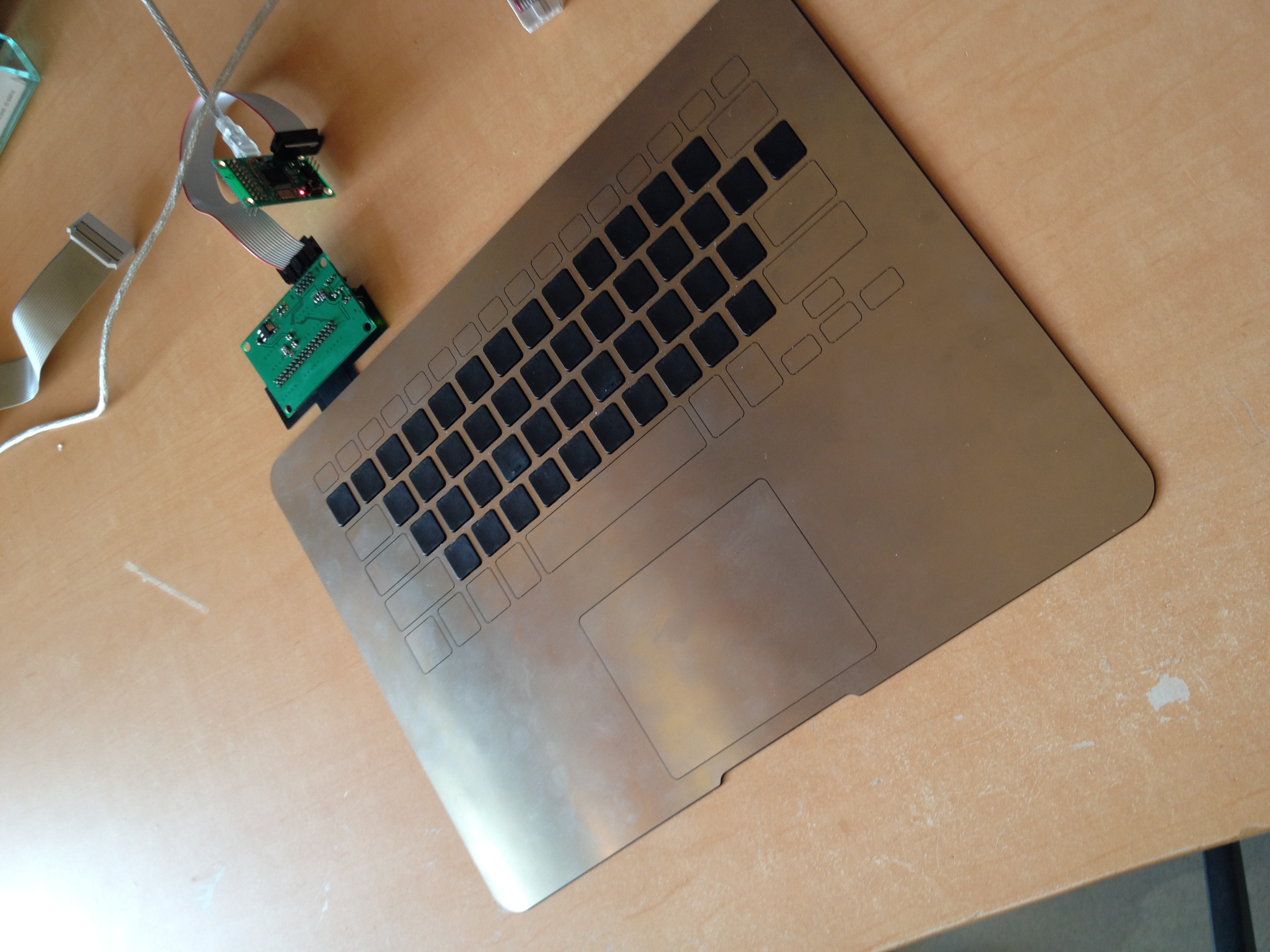Synaptics' ThinTouch Keyboard Will Enable Better Laptops
This next generation keyboard technology is thinner and capacitive touch-sensitive.
Synaptics' next big input product will be the ForcePad, but a little beyond that in the company's timeline is something just as impressive: the force- and touch-sensitive keyboard.
The company announced this ThinTouch keyboard technology in early August. As the name suggests, ThinTouch is thinner than today's rubber dome and scissor keyboards. It boasts a thickness of no more than 2.5mm. This is compared to today's technology, which requires a z-height between 3.5mm and 6mm. As with any space savings, this will enable system makers to make thinner and light devices, or to use the extra room for more hardware and bigger batteries.
Those curious as to how Synaptics achieved this feat will have to stay tuned, as the company wasn't quite ready to reveal everything just yet. We were given a blind test of several key technologies, and we chose ThinTouch as the one with the best tactile feel without any prompting or intervention from Synaptics. The ThinTouch keys had a very distinct springiness that pleased our touch-typing habits. To our fingers, ThinTouch does not noticeably decrease key travel compared to other notebook keyboards; the space savings appears to come mostly from the underlying mechanism.
While all can easily appreciate the thinner keyboard technology, ThinTouch also packs something a bit more revolutionary: capacitive touch and force sensitivity. Synaptics proposed that this can lead to new input models such as increased force to mean capital letters, or using the touch-sensitive keys to disable accidental trackpad inputs.
The company's sizzle video demonstrates some of this. Only time will tell if system makers will adopt the touch aspects of ThinTouch, but we can't wait to see the benefits of the lower profile keys.
Read more from @MarcusYam on Twitter.
Contact Us for News Tips, Corrections and Feedback
Get Tom's Hardware's best news and in-depth reviews, straight to your inbox.
-
amk09 I have no objections to going thinner as long as it's still responsive, accurate, and consistent! The desire to "feel" the key being pressed down is forever ingrained in me, no matter how much we transition to touch. Thankfully it looks as if this keyboard will still provide tactile keys :)Reply -
teh_chem I am intrigued. Hopefully they can maintain a similar extent of tactile feedback.Reply
TBH, if tactile feedback (more importantly, discrete keys with tactile boundaries) could be designed into a touchpanel-based keyboard, and have the touch tech. not be prone to accidental keystrokes, it might be something. But as of now, touchpanel keyboards have nothing like this, so typing with them is major teh suck. Just thinking out loud... -
headscratcher teh_chemI am intrigued. Hopefully they can maintain a similar extent of tactile feedback. TBH, if tactile feedback (more importantly, discrete keys with tactile boundaries) could be designed into a touchpanel-based keyboard, and have the touch tech. not be prone to accidental keystrokes, it might be something. But as of now, touchpanel keyboards have nothing like this, so typing with them is major teh suck. Just thinking out loud...This is what has be considering a Blackberry Bold right now. I mostly use my phone for sending messages anyway.Reply -
mr_tuel Interesting. Having to type with different levels of force to dictate capitalization would take some getting used to, and could allow one to re-purpose the shift and caps keys. Hopefully the keys still have reasonable tactile feedback or I won't use one. IMO the keys on the early 2008 MacBook Pro (right before unibody and with concave keys) are ideal for a laptop. The concave surface guides my fingers to the center of the keys far better than the flat plane of modern chiclet keys. Maybe I'm just old-school :/Reply
-
Tab54o I don't agree. they just keep making things smaller and thinner but also less functional. Function before form!!! ALWAYS.Reply -
altriss Tab54oI don't agree. they just keep making things smaller and thinner but also less functional. Function before form!!! ALWAYS.before screaming wait and test it...Reply
And by the way, thinner also mean more space for battery on laptop, and so more function.
So please instead of directly accusing everything new for being different than what you have imagined, wait and see...
-
flowingbass Great... capacitive. So when your fingers rest on some keys on the keyboard or even just unnoticingly "touch" keys you dont intend to hit, you start typing "ljsReply -
jacobdrj Hmm, wonder why I missed this article. This seems very cool. Hopefully it has nice tactile feedback and doesn't cost too much...Reply



